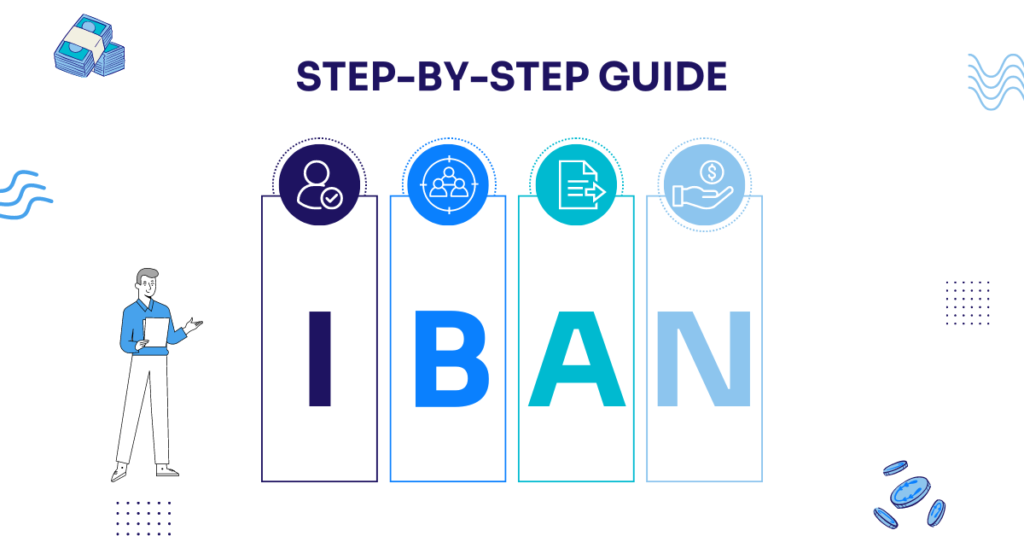The Rise of Virtual IBANs
The banking sector has undergone transformative shifts recently, spearheaded by digital advancements. Among these, Virtual IBANs (vIBANs) stand out as a game-changing innovation.
In an increasingly interconnected global economy, seamless cross-border transactions are imperative. While traditional International Bank Account Numbers (IBANs) have partially met this need, they have limitations. Virtual IBANs emerge as a groundbreaking solution, enhancing the efficiency, affordability, and adaptability of international banking.
The effectiveness of a virtual IBAN solution is inherently tied to the institution offering it. Consequently, choosing the right provider becomes a strategic decision capable of substantially shaping an organization’s competitive advantage in the market.
Streamlining Global Finance
Virtual IBANs streamline cross-border payments by simplifying currency conversions and minimising transactional friction. API (Application Programming Interface) integrations automate these processes, reducing manual errors and boosting efficiency. Real-time tracking features provide an in-depth look at financial activities, facilitating superior cash flow management.
Serving as a catalyst for operational excellence, Virtual IBANs are reshaping the landscape of international banking with:
Enhanced Flexibility
Traditional IBANs are tied to physical bank accounts and geographical locations. Virtual IBANs, on the other hand, offer the flexibility to manage multiple currencies and transactions from a single platform, making them ideal for businesses operating globally.
Cost-Effectiveness
Setting up and maintaining multiple bank accounts in different countries can be costly. Virtual IBANs eliminate the need for multiple accounts, thereby reducing administrative costs.
Speed and Efficiency
Virtual IBANs facilitate quicker transactions by bypassing intermediary banks. This is particularly beneficial for businesses that require real-time payments.
Improved Reconciliation
With vIBANs, businesses can allocate a unique identifier for each client or transaction, making it easier to track and reconcile payments.
Challenges of Finding the Best Virtual IBAN Provider
Finding the right virtual IBAN provider is not just about capitalising on transactional efficiencies but also navigating a maze of challenges. It requires a rigorous due diligence process to ascertain regulatory compliance, a critical parameter for businesses in high-risk financial sectors.
Additionally, the provider’s capacity for scalability is a pivotal consideration for long-term operational sustainability. Fiscal transparency, particularly in fee structures, is non-negotiable to mitigate financial risk. Lastly, the calibre of customer support serves as a key indicator of the provider’s reliability and should be evaluated meticulously.
Types of Virtual IBAN Providers
The efficacy of a virtual IBAN solution is intrinsically linked to the institution that provides it. Each type of institution has its own set of regulations, fees, and service offerings, so it’s important to carefully consider your specific needs when choosing a provider.
Our list provides a nuanced understanding that can guide businesses in making an informed selection:
Traditional Banks
Traditional banks bring the security and trustworthiness of well-established institutions to the virtual IBAN arena. They often offer these services as an extension of their existing corporate and international banking solutions.
- Limitations: May have higher fees and slower onboarding processes.
Online Banks (Challenger Banks)
Online banks, also known as challenger banks, provide a modern twist to banking by offering virtual IBANs with quick setup and lower fees. Their platforms are designed for ease of use and often come with a range of digital features.
- Limitations: May lack the full range of services offered by traditional banks.
Fintech Companies
Fintech firms are pioneers in the virtual IBAN landscape, offering innovative and quick solutions for a variety of sectors. They are known for their competitive fees and user-friendly platforms.
- Limitations: May not offer as many services as traditional banks and could be less regulated.
Payment Service Providers (PSPs)
Payment Service Providers specialise in payment processing and often include virtual IBANs as part of their comprehensive service offerings. They are particularly useful for businesses that require streamlined payment solutions.
- Limitations: May not be as regulated as traditional banks.
Foreign Exchange Brokers (Forex Brokers)
These brokers offer virtual IBANs with the added benefit of competitive foreign exchange rates. They are primarily focused on currency exchange services and may lack other traditional banking features.
- Limitations: Primarily focused on currency exchange and may lack other banking services.
E-Money Institutions (EMIs)
E-Money Institutions provide a quick and easy setup for virtual IBANs, often with lower fees. However, they are generally limited in the range of financial services they can offer.
- Limitations: Limited in the types of financial services they can offer.
B2B Financial Service Providers
These providers offer tailored financial solutions for businesses, including the provision of multicurrency virtual IBANs. They may charge higher fees for their specialised services but offer a range of features designed for business needs.
- Limitations: May have higher fees for premium services.
Specialised Financial Institutions
These institutions serve niche markets or specialised industries and may offer virtual IBANs tailored to those specific needs. However, their service offerings may be limited outside their area of specialisation.
- Limitations: May have limited service offerings outside their area of specialisation.
Steps to Finding the Best Virtual IBAN Provider
To streamline your business’s global transactions, finding the right Virtual IBAN provider is essential. This step-by-step guide walks you through the critical considerations to make an informed decision:
Step 1: Define Your Business Needs
- Volume of Transactions: Estimate the number of transactions you’ll be processing.
- Currencies: Identify the currencies you’ll be dealing with.
- Geographical Reach: Determine the countries you’ll be sending to or receiving money from.
- Compliance Requirements: Understand the legal and compliance requirements for your industry.
Step 2: Research Providers
- Search Online: Use search engines to find providers that offer virtual IBANs.
- Industry Recommendations: Consult peers or industry experts for recommendations.
- Review Sites: Check out reviews on platforms like Trustpilot or G2.
- Consult Regulatory Websites: Ensure the provider is regulated by a reputable financial authority.
Step 3: Compare Features
- Ease of Use: User-friendly interface and API.
- Cost: Setup fees, transaction fees, and monthly charges.
- Customer Support: Availability and responsiveness.
- Additional Services: Forex services, payment gateways, etc.
Step 4: Contact Providers
- Ask for a Demo: Most providers will offer a demo to showcase their platform.
- Discuss Customisation: See if the provider can tailor their services to your needs.
- Negotiate Terms: Discuss fees, contract length, and other terms.
Step 5: Test the Service
- Pilot Program: Start with a small number of transactions to test the service.
- Feedback Loop: Keep an open line of communication with the provider for any issues.
Step 6: Make a Decision
- Review Data: Analyse the performance data from the pilot program.
- Final Negotiations: Make any last-minute negotiations on terms.
- Sign Contract: Once satisfied, proceed to sign the contract.
Step 7: Implementation
- Integration: Integrate the virtual IBAN into your existing financial systems.
- Training: Train your team on how to use the new system.
Step 8: Ongoing Monitoring
- Performance Metrics: Regularly review performance metrics.
- Customer Support: Maintain a relationship with your provider for ongoing support.
Virtual IBAN Provider Selection Made Simple
Integrating a Virtual IBAN into your financial operations could be the strategic edge that sets you apart in the global marketplace. Selecting the right Virtual IBAN provider is crucial for streamlining international transactions and reducing costs. The selection process involves understanding your business needs, conducting thorough research, and evaluating providers on compliance, scalability, and customer support.
In the quest to find the ideal virtual IBAN provider, businesses often find themselves entangled in a web of options, each with its own set of features, fees, and regulations. This process can be daunting and time-consuming. Capitalixe simplifies this journey by connecting you with Virtual IBAN providers that align with your specific requirements to eliminate the hassle of navigating through countless options.
For a free consultation to find the right Virtual IBAN provider for your business, reach out today!






